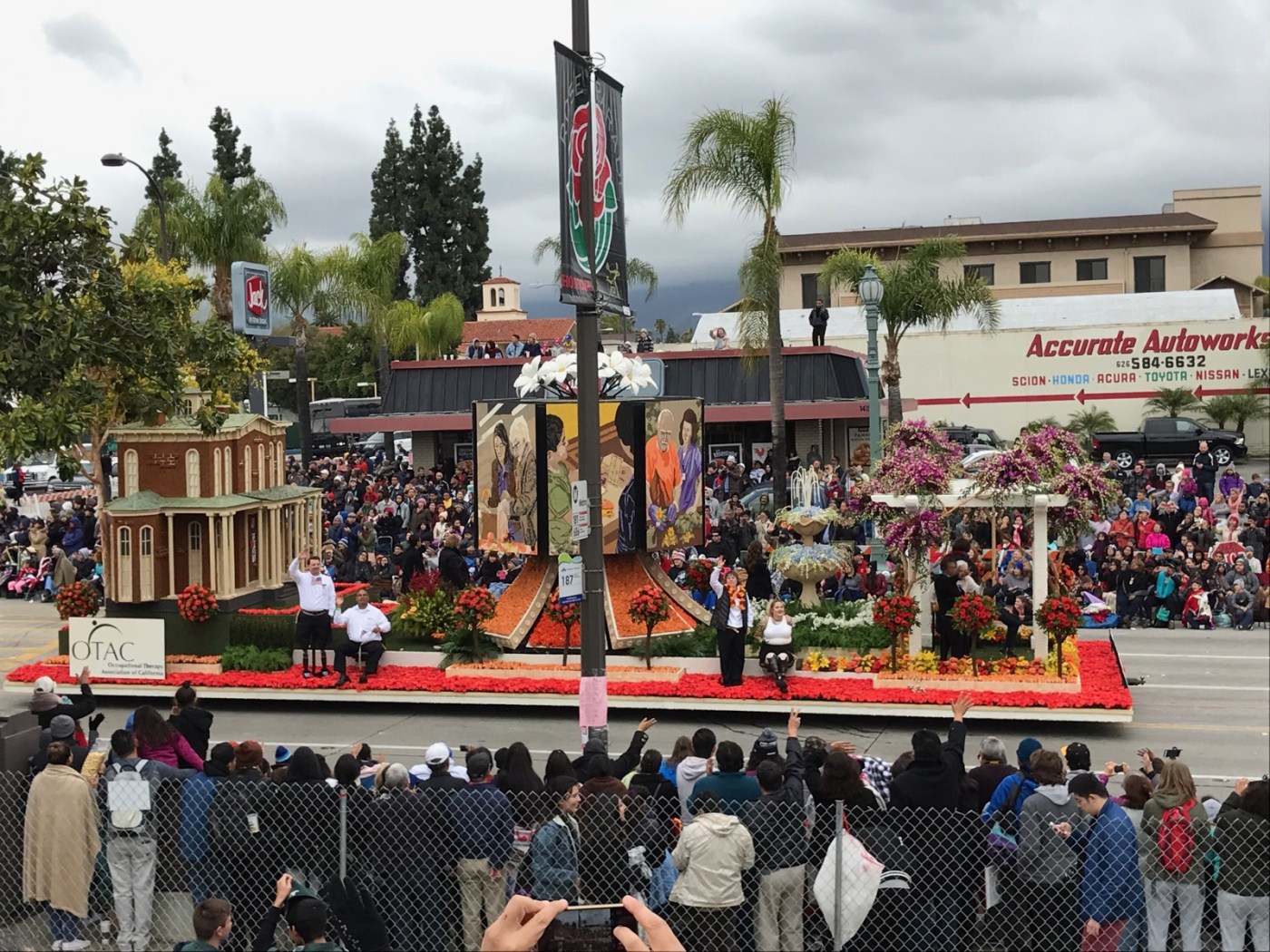Shot in the head in Iraq, Marine Veteran Jesus Vidana would like you to know about VA’s Occupational Therapy program and how it helped him. Today, it’s his career.
That’s him sitting on the Rose Parade float above, second from the left.
April is Occupational Therapy Month and to mark the 100th anniversary of the profession, VA joined the Occupational Therapy Association of California by sponsoring a float in the 2017 Rose Parade.
Vidana served as an infantry unit radio operator with the Marine Corps from 1997 to 2004.
He was shot in the head in April 2003. His brain injury resulted in a hemiparesis (weakness of one side of the body), heminopsia (loss of visual field), depression, and cognitive deficits.
His VA treatment began at VA Palo Alto as an inpatient and continues today as an outpatient at the Greater Los Angeles VA. Vidana says he “Received the full gamut of therapy services. Physical therapy, speech, recreation, neuropsychology and occupational therapy.”
Over 1,400 VHA Occupational Therapists and Occupational Therapy Assistants help people across the lifespan to do the things they want and need to do through the therapeutic use of daily activities (occupations).
Each discipline focused on the scope of practice, but occupational therapy (OT) is significant to Vidana because he received his undergraduate degree in OT from USC in 2001. During his outpatient treatment he volunteered in the OT department as part of his therapy
At the time of his injury he had not received his board certification in OT. The occupational therapists and speech therapist at the VA helped him prepare for his board exam.
LA-born-and-raised Vidana (a major University of Southern California Trojan fan) gives a big shout out to VA staff members Debbie Anton, Toni Kawamoto, Jody Sakamoto, Anna Okonek, Mary Walsh, and Dr. Doreen Opava-Ritter.
VA OTs provide holistic, client-centered treatment with goals to maximize each Veteran’s independence in activities of daily living, community living skills, education, work, leisure interests, and social participation. Occupational therapy practitioners enable Veterans to live life to the fullest by helping them promote health, and prevent—or live better with—injury, illness, or disability.
Vidana adds that VA OT “Has helped me regain functional independence. I’m mostly satisfied with my care at the VA. Sometimes I wish things were more timely but I understand the nature of health care and the need to triage even in nonemergency care. My message to Veterans is be patient with VA staff. They’re here to serve you.”
And the ride on the float? “It was great. I was able to share the ride with the former chair of the OT department at USC and a fellow wounded warrior and Marine who receives services from VA in San Diego.”
Occupational Therapy:
- Provides personalized and client-centered evaluation and treatment to facilitate Veterans participation in the activities and goals that are meaningful for them.
- Involves the therapeutic use of everyday life activities (occupations) with individuals and groups for the purpose of participation in life roles in their home, work, school, and community settings.
- Promotes health and wellness to those who have, or are at risk, for developing an injury, illness, disease, or condition.
- Provides evaluation and treatment using a holistic approach that includes engagement in occupations that affect health and well-being by addressing physical, cognitive, psychosocial, sensory functioning and skills that may affect participation in everyday life.
Topics in this story
More Stories
The Medical Foster Home program offers Veterans an alternative to nursing homes.
Watch the Under Secretary for Health and a panel of experts discuss VA Health Connect tele-emergency care.
The 2024 National Veteran Suicide Prevention Annual Report provides the foundation for VA’s suicide prevention programs and initiatives.







